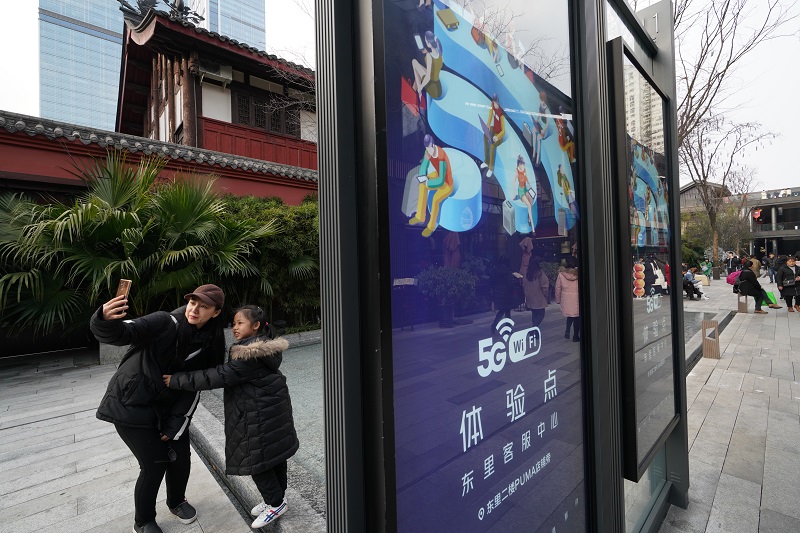

Chinese Technology
Technology from American tech giants Facebook, Amazon, Microsoft, Google and Apple has transformed the world over the last 20 years including development of e-commerce, smart phones, social media and commercialising the internet. Chinese technology firms are challenging these incumbents in the next cycle of innovation due to their significant structural advantages. The trade war between the United States and China has at its core the struggle for control of technological supremacy.
In a recent whitepaper by Fidelity International (China Innovation) some interesting and insightful points were raised, which I want to elaborate on in this newsletter. The authors quote Kai-Fu Lee who was the pioneer of Artificial Intelligence in China as stating “data is the new oil, and China is the new Saudi Arabia”. Creation of data, access and evaluation is crucial to the development of the next cycle of innovations. They also note that China has created more data than any other nation and is surpassing global data growth.
The whitepaper explains how China is in a matchless position as both a source and destination for the most innovative firms. The Chinese government also has put in place policy and regulations that are favourable to innovation and that has allowed innovative firms to flourish.

Some interesting statistics provided by Fidelity include that China:
- now has 8.3 times more science, technology, engineering and mathematics (STEM) graduates than the United States;
- is home to the largest number of leading innovative firms;
- was granted more patents than any other country – 31% in total; and
- has surpassed the United States to become the largest producer of global research papers.
Fidelity point out that the Chinese population is increasingly connected and becoming more affluent. China has the largest population of smart phone users who are comfortable living their life online. Additionally, China is increasingly becoming the base for supply chains for high value-added products. As a result of these factors, China offers global companies a bountiful environment for innovation, a massive market and the ability to scale up successful innovation.
Innovation Themes
The authors believe there are three main types of innovation themes: technology, lifestyle and environmental. Chinese technological firms are producing the products and services that meet consumer needs in these areas.
In relation to technology they state that there are three sub-themes:
- Artificial intelligence (AI) and digitisation – creating and delivering AI, machine learning and wider digital technology to create new revenue streams, expand the available market and improve productivity.
- Automation and robotics – automate production and operation without human interference to improve quality and efficiency.
- Future mobility – new technologies and business models including ride sharing, autonomous driving and micro mobility are changing way people move around and live their lives.

The lifestyle theme revolves around changing and improving our lives through innovative solutions to three sub-themes:
- Healthy – higher quality medicines, personalized nutrition, food technology and telemedicine.
- Wealthy – creating new ways to save, invest and spend money.
- Wise – modern learning methods like online education and digital entertainment.
Finally, the environmental theme involves the creation and application of products and processes that promote sustainable environmental protection and ecological advancements. The main areas include electric vehicle makers and component suppliers, waste treatment and alternative sources of clean energy.
Conclusion
Fidelity summarise that these new themes are still in their infancy, have immense range of use and will be substantial drivers of change and growth for many years and so will have a lasting effect on society.
Many of the fund managers that Financial Decisions use on behalf of our clients invest in Chinese tech firms so we already have some inroads into this innovative market.
If you wish to discuss any concerns about the current market or about any strategies to do with your financial plans, do not hesitate to call your Financial Adviser.
Disclaimer: This publication has been compiled by Financial Decisions (AFSL/ACL Number 341678). Past performance is not a reliable indicator of future performance. While every effort has been taken to ensure that the assumptions on which the outlooks given in this publication are based on reasonable data, the outlooks may be based on incorrect assumptions or may not take into account known or unknown risk and uncertainties. Material contained in this publication is an overview or summary only and it should not be considered a comprehensive statement on any matter nor relied upon as such. The information and any advice in this publication do not take into account your personal objectives, financial situation or needs. Therefore you should consider its appropriateness having regard to these factors before acting on it. While the information contained in this publication is based on information obtained from sources believed to be reliable, it has not been independently verified. To the maximum extent permitted by law: (a) no guarantee, representation or warranty is given that any information or advice in this publication is complete, accurate, up-to-date or fit for any purpose; and (b) Financial Decisions nor its employees are in any way liable to you (including for negligence) in respect of any reliance upon such information or advice. August 2020
Contact: Financial Decisions PO Box 484 Mona Vale NSW 1660, T 02 9997 4647, F 02 9997 7407
